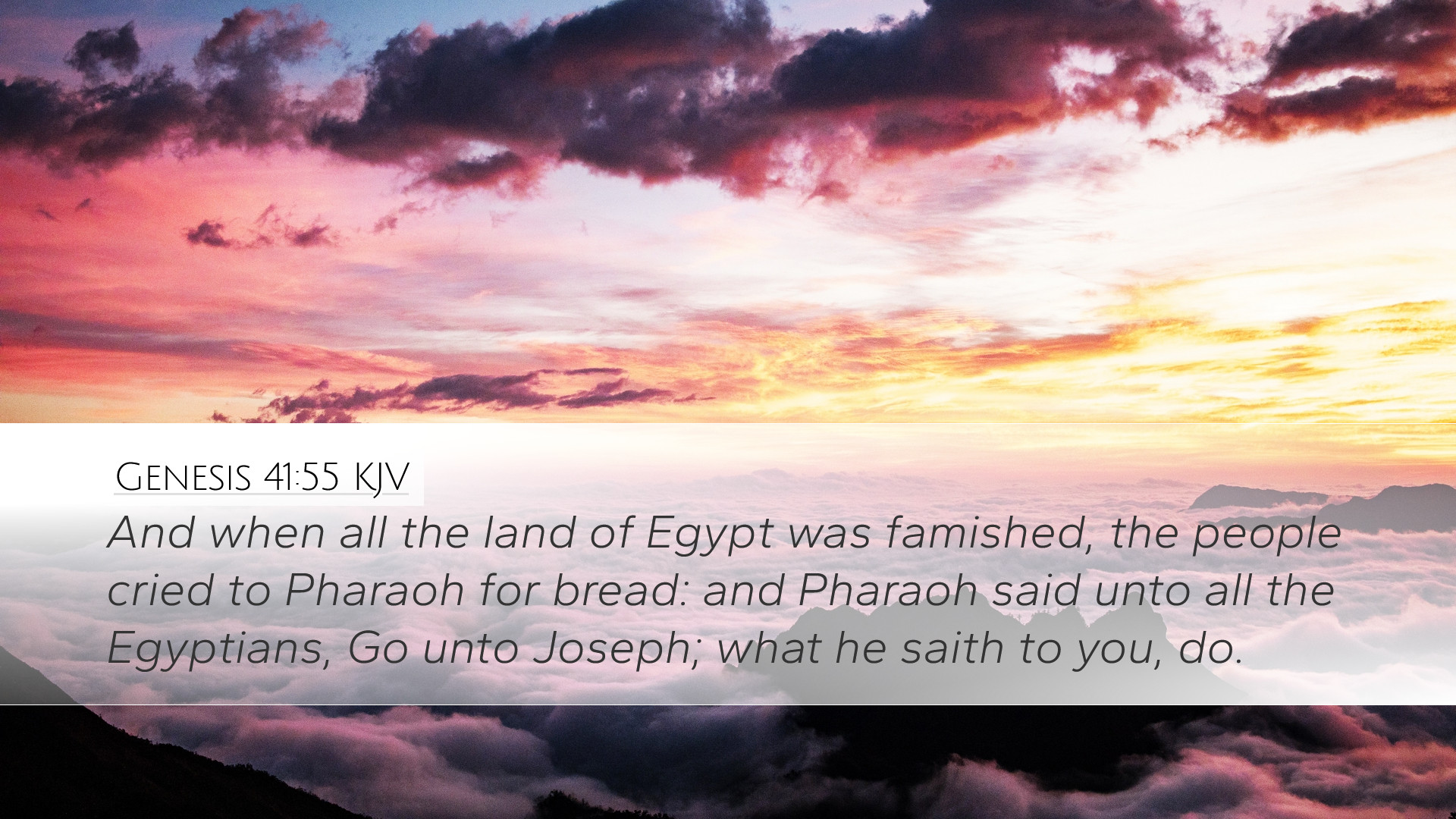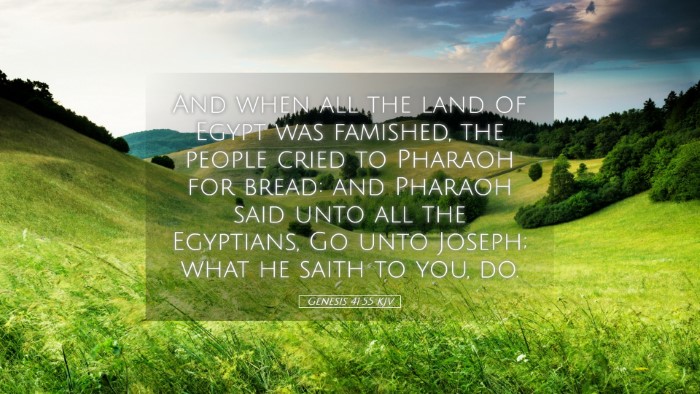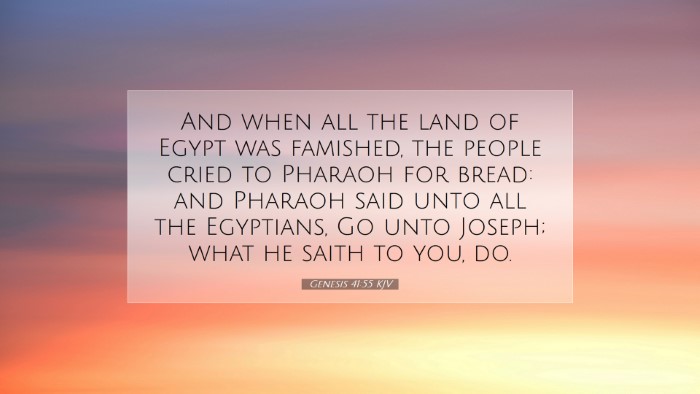Commentary on Genesis 41:55
Verse Context: Genesis 41:55 states, "And when all the land of Egypt was famished, the people cried to Pharaoh for bread: and Pharaoh said unto all the Egyptians, Go unto Joseph; what he saith to you, do." This verse occurs during a time of famine in Egypt, which was foreseen by Joseph through his interpretation of Pharaoh's dreams.
Exegesis and Analysis
The narrative context of this passage highlights Joseph's rise to power after enduring severe trials. Joseph, sold into slavery by his brothers, endured false accusations and imprisonment, yet he remained faithful, ultimately interpreting Pharaoh's dreams that foretold seven years of plenty followed by seven years of famine. The physical famine serves as a metaphor for spiritual famine, and it emphasizes the need for divine guidance in times of desperation.
Insights from Matthew Henry
Matthew Henry emphasizes the providence of God in this scenario. He notes that just as Joseph was prepared for the task of managing Egypt's grain supply during the famine, God prepares believers for their God-ordained roles through trials. Henry asserts that Joseph’s administration amid the famine not only saved Egypt but also provided for surrounding nations, showing how God uses individuals for broader purposes.
Insights from Albert Barnes
Albert Barnes reflects on the desperate state of the Egyptians as they cry out to Pharaoh. He points out that this moment illustrates the limits of human power—Pharaoh, despite his authority, directs his people to seek Joseph for solutions. Barnes highlights that Joseph, a servant of God, became the channel through which God's provision flowed, stressing the importance of listening to divinely appointed leaders and recognizing God’s sovereignty in dire circumstances.
Insights from Adam Clarke
Adam Clarke provides a detailed look into the implications of the people's response to Pharaoh. Clarke suggests that the Egyptians' cry for bread signifies their recognition of need and dependency—an essential attitude for any believer. He posits that this moment is pivotal; Pharaoh’s statement reflects the need for obedience to God's chosen instruments. Clarke notes that in times of spiritual famine, seeking out God's leaders is critical for salvation, sustenance, and direction.
Theological Reflections
- Divine Sovereignty: This verse reflects God's sovereignty over human affairs. The famine, a natural disaster, is utilized by God to execute His divine plan. Joseph's elevation and the Egyptians' reliance on him demonstrate how God orchestrates events for His glory.
- Role of Leadership: Pharaoh directs the people to Joseph, showcasing the role of leaders in guiding their communities in times of crisis. This reflects the Christian principle of submitting to God’s appointed authorities.
- Human Dependency: The Egyptians' desperate cries encapsulate the essence of human vulnerability. It reflects the spiritual reality that apart from God, individuals and societies cannot sustain themselves. This teaches followers of Christ the importance of reliance on God’s providence.
- Preparedness in Trials: Joseph’s earlier trials led to his significant role in Egypt during the famine. This principle resonates with believers today, as trials can be a precursor to opportunities for service.
Applications for Ministry and Teaching
The events surrounding Genesis 41:55 serve as profound illustrations for contemporary ministry:
- Encouragement in Leadership: Pastors and leaders should find encouragement in Joseph’s story, recognizing that God can use their trials to prepare them for significant callings.
- Call to Obedience: This passage can be taught to emphasize the necessity of heeding God’s guidance through appointed leaders, reminding congregations of their responsibility to seek spiritual nourishment.
- Addressing Human Need: In communities facing spiritual or physical famine, churches are called to be places of provision and hope, just as Joseph provided for the people of Egypt.
- Reliance on God: Just as the Egyptians turned to Joseph, congregants should be encouraged to turn to God and His Word in times of need, fostering a culture of dependence on divine wisdom.
Conclusion
Genesis 41:55 encapsulates themes of human need, divine provision, and the importance of leadership in times of crisis. By examining the insights of renowned commentators such as Matthew Henry, Albert Barnes, and Adam Clarke, readers gain a deeper understanding of how God sovereignly works through individuals. As spiritual leaders and believers reflect on this passage, it calls them to respond to crises with faith, commitment, and an assurance of God’s sustaining grace.


